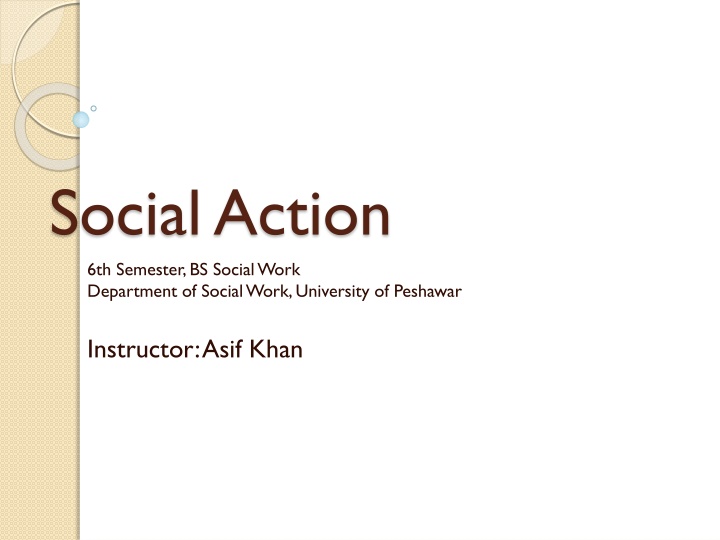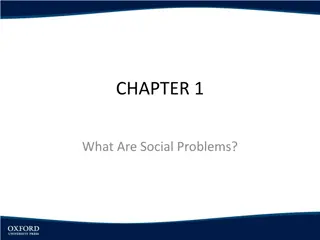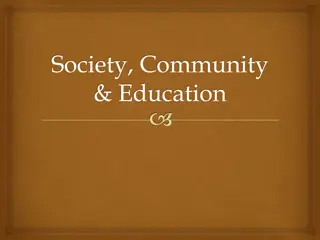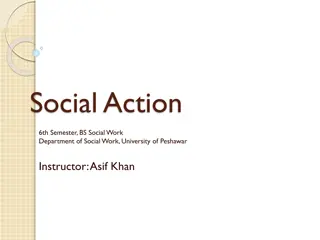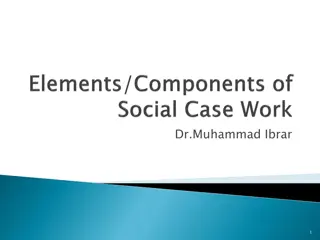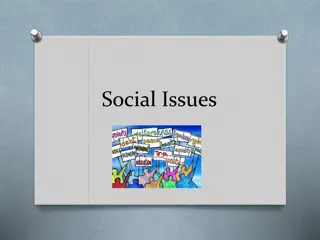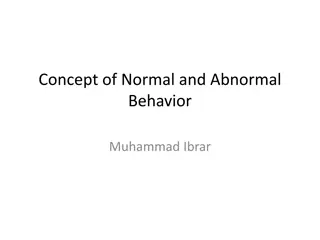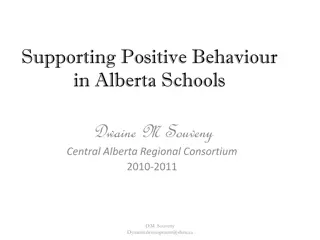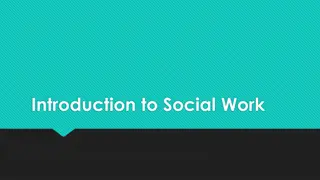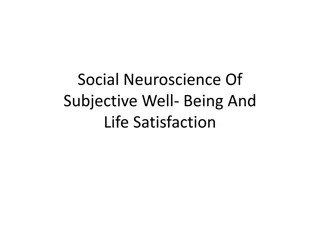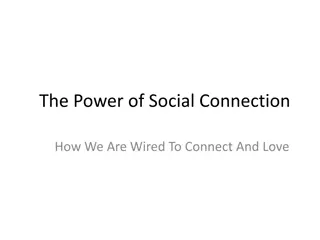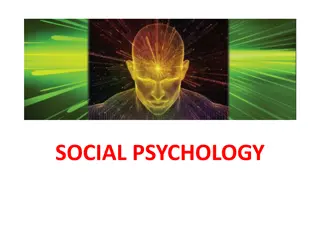Elements of Social Action: Understanding Human Behavior in Society
Social action plays a vital role in analyzing human behavior within a society. Max Weber's concept emphasizes how actions influence and are influenced by others, holding subjective meanings. Talcott Parsons outlined five components: actor, objective, social situation, normative orientation, and energy. The actor's personality and social knowledge impact their actions, driven by goals and influenced by societal norms. This comprehensive analysis helps sociologists interpret human conduct effectively.
Download Presentation

Please find below an Image/Link to download the presentation.
The content on the website is provided AS IS for your information and personal use only. It may not be sold, licensed, or shared on other websites without obtaining consent from the author.If you encounter any issues during the download, it is possible that the publisher has removed the file from their server.
You are allowed to download the files provided on this website for personal or commercial use, subject to the condition that they are used lawfully. All files are the property of their respective owners.
The content on the website is provided AS IS for your information and personal use only. It may not be sold, licensed, or shared on other websites without obtaining consent from the author.
E N D
Presentation Transcript
Social Action 6th Semester, BS Social Work Department of Social Work, University of Peshawar Instructor: Asif Khan
Elements/Components of Social Action Action refers to the process of doing something or an act. Effort, movement and exertion are required to perform any task or action. However, every action could not be considered as social action. According to Max Weber (pioneer of the concept) an action is not social action unless it influence the behavior of others or influenced by the action of others as well as, each social action hold subjective meaning. Sociologists are interested in analyzing human social conduct in order, to understand human social behavior they have to draw some assumptions. Max Weber has pioneered and presented the concept of social action to analyze the social behavior of individuals within a given society. Though, it is mandatory for social scientists to explore the elements of social action to study and interpret human social conduct.
Contnd Talcott Parsons has explained five components social action these include actor, objective, social situation, normative orientation and energy. The Actor The Goal or Objective Social Situation Norms Energy
1. The Actor The primary agent and element of social action is an actor. Each social action is performed by an individual or an actor. Social scientist do not analyze social action of an actor via his physical appearance but on the basis of actor personality. Each social action performed by an individual is the product of his personality and personality of an individual is developed through learning social knowledge. Individuals experience and encounter many social situation in their life time via which they obtain social knowledge. This acquired social knowledge compel an actor to behave in a certain way in a given social situation. Sociologists do not focus on observing external aspects of social action but, they analyze social action based on internal subjective experience such as, an actor way of thinking, perception or the way he or she sees the world around them.
2. The Goal or Objective Goal is another element of social action. In order to study human social behavior sociologists must determine the aim of individual or individuals behind social action. Objective is the purpose and desired outcome of individual social conduct. However, the objective of individual may or may not be achieved through his social conduct for instance, a father may beat his son to stop him from smoking, the outcome could be either his son might quit smoking or he may develop feeling of hatred towards his father or he might face psychological problem due to physical violence.
Contnd Moreover, the objective behind the social action is chosen by the actor and the choice of an actor is influenced by the values. Values are the things which are desired and cherished by an individual. These values might be actor sentiments or organic urges for instance, a person might steel food from a store because he cannot afford to buy food in order satisfy his organic need of hunger or he may be professional thief who had learned and developed the idea or thought of perusing criminal profession via socializing in bad company. Either way an actor may or may not achieve his objective whether,the objective is derived from sentiments or,organic urges. Some Sociologists, psychologists and anthropologists believe that social action is influenced by social situations.In other words,social situation compel an individual social conduct which means social conditions is the force that shape and determine human behavior. Furthermore,social condition is not the only factor for interpreting human social behavior but, sometimes individual conduct is motivated by social situations.
3. Social Situation Social situation is another source of social action. Social situations refer to the different events which occur within a group. These situations force an individual to act in a certain way. For instance, if an individual is called for job interview he is supposed to wear formal dress and act formally during interview to be selected for the job. In this example social situation is job interview and the objective of actor social action is to be selected for the job. in order to achieve objective actor perform social action such as, dress formally, sit properly and properly answer interview questions which will make him look suitable candidate for the job. There are two types of social situations these include, controllable social situation and uncontrollable social situations. Controllable social situation refer to those social events which are predictable and could be controlled through certain social actions. Whereas, uncontrollable social situations refer to those social events which are unpredictable and may or may not controlled through actor social conduct.
4. Norms Norms are among one of the elements of social action. Norms patterns on the basis of which individuals perform social action within different social settings. Each society, group and institution has certain set of rules which have to be followed by individuals. These set of rules regulate the behavior or social action of an actor or actors within a given group. are the social
5. Energy Every social action requires energy to be performed. Type of energy depend on the type of social action, social action may require physical or mental energy for its performance.
